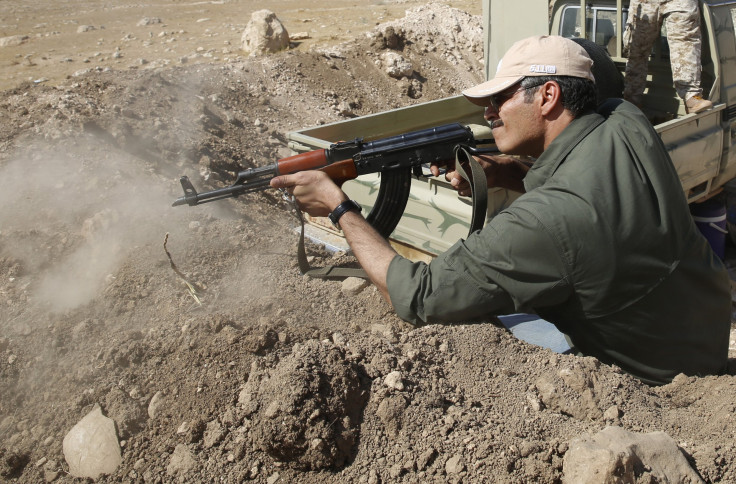Iraq Forms Coalition Government, Makes Advances Against Islamic State Rebels

Following intense political bargaining over whether Kurdish MPs would back a new government in Baghdad, Iraq’s parliament officially named Haider al-Abbadi the country’s new prime minister. In his acceptance speech, he vowed to work out disputes with the Kurds over oil exports and public salaries. Two key posts, interior ministry and defense, were left empty while former Prime Minister Nouri al-Maliki was named to a largely ceremonial post of vice president.
"My government is committed to solve all suspended issues with the Kurdistan Regional Government," al-Abbadi said in his acceptance speech, according to Reuters.
The vote poses some relief to the alarming advances by Islamic State fighters. The U.S., which is helping Iraqi security forces battle against a flood of Islamic fundamentalist rebels, has been urging Baghdad to quickly work out a coalition government to help take away support for the Sunni militants.
Iraqi state television said al-Abbadi wants three deputies from each of the major religious and ethnic groups in the country: one Shia, one Sunni and a Kurd. A-Maliki relinquished his post Aug. 14, ending his eight-year administration that had been accused for years of favoring Shiites in a country where roughly half of the population identifies as Sunni.
The Kurdish bloc had been opposing the formation of the new government because Iraq’s national Alliance, a coalition of Shia political groups that make up the parliament’s majority, had failed to make adequate concessions, according to Reuters.
Baghdad recently stopped paying the Kurdistan Regional Government's civil servant salaries in protest of the Kurd’s independently exporting oil to Turkey. But the Kurdish bloc in parliament appears to have been granted enough concessions to put its weight behind Al-Abbadi.
The dispute over Kurdish oil exports has even hit U.S. courts, where Iraq is demanding that the U.S. government seize oil parked in a “ghost ship” tanker off the coast of Texas if the vessel’s crew attempts to unload $100 million worth of oil from an anonymous broker to a publicly unknown buyer.
Meanwhile, Islamic State fighters continue to cause mayhem in Syrian and Iraq. On Monday, two suicide bomb attacks north of Baghdad killed at least 18 people and in a town that had been resisting the Islamist militants.
The two-punch attack, in which a car bomb was detonated at a security barrier in order to allow access to a neighborhood by a second bomber, was followed by fighting between ISIS rebels and local police and allied members of local tribes. About 50 were injured in the fighting.
Iraqi forces managed on Monday to secure the area near an important hydroelectric dam about 150 miles (about 240 kms) northwest of Baghdad. The U.S. provided air support in that operation, expanding the U.S. role in fighting ISIS in Anbar province, the Washington Post reported.
© Copyright IBTimes 2024. All rights reserved.






















